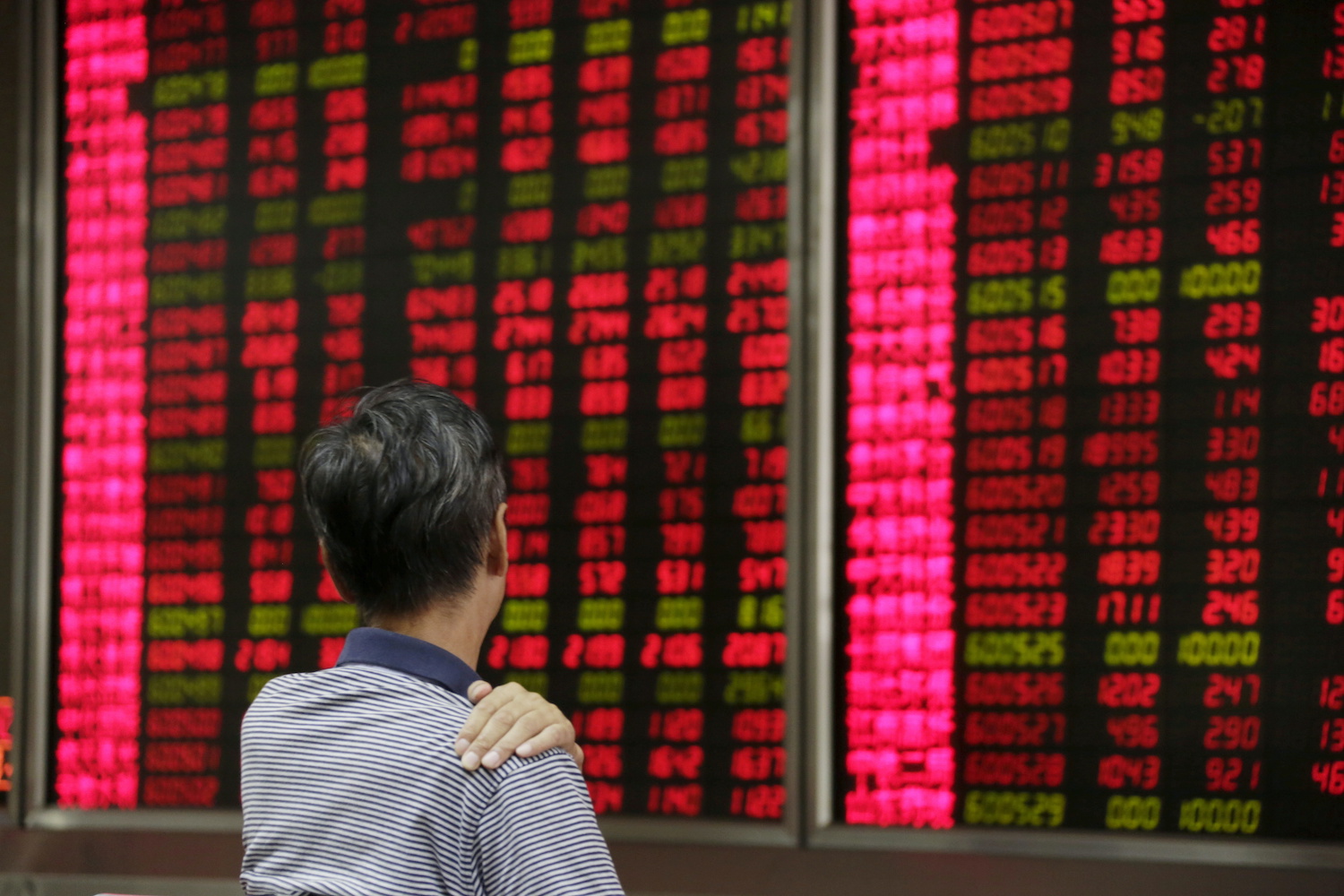Asian markets plummeted on Friday after confirmation of the emergence of a new coronavirus variant that scientists warn could be more infectious than Delta and more resistant to vaccines, potentially dealing a heavy blow to the global recovery.
The B.1.1.529 strain has been blamed for a surge in fresh cases in South Africa and has already cropped up in Hong Kong, with the World Health Organization due to hold a meeting later on Friday to decide if it should be designated a variant of “interest” or of “concern.”
The discovery of the South African variant has led Britain, Germany, Italy, Singapore and Israel to ban all travel from the country and five others in southern Africa, as officials look to prevent it from taking hold in populations and spreading quickly. The European Union said it was looking into a blanket ban across the bloc.
“Early analysis shows that this variant has a large number of mutations that require and will undergo further study,” the WHO said.
Also on AF: New Covid Variant Causes Alarm, States Rush to Shut Doors
The news has hammered confidence in Asian markets, which were already under pressure as traders prepared for the Federal Reserve to start tightening its monetary policy to fend off surging inflation.
On the equity markets, Tokyo, Hong Kong and Mumbai were more than 2% off, while Sydney, Seoul, Singapore, Bangkok, Taipei, Manila, Mumbai, Wellington and Jakarta shed more than 1%. Shanghai saw more limited losses. London, Paris and Frankfurt dived at the open.
Firms linked to travel were among the worst affected as investors fretted over the possibility that more restrictions will be brought in by governments.
Sydney-listed Qantas lost more than 5%, Hong Kong’s Cathay Pacific shed 4.1% and Singapore Airlines more than 3%. Macau casino operators were also down in Hong Kong.
The Hang Seng Index tanked 2.67%, or 659.64 points, to 24,080.52. The Shanghai Composite Index fell 0.56%, or 20.09 points, to 3,564.09, while the Shenzhen Composite Index on China’s second exchange slipped 0.20%, or 5.07 points, to 2,507.15.
The benchmark Nikkei 225 index managed to trim losses in late trade and ended down 2.53% or 747.66 points to 28,751.62. The broader Topix index slipped 2.01% or 40.71 points to 1,984.98.
Oil Price Slides
Oil prices were also sharply down – with Brent and WTI more than 4% lower – on concerns about the impact on demand if new containment measures were to be introduced.
The selling comes as OPEC and other key producers prepare to meet next week to discuss output plans, with analysts saying officials will be keeping a close eye on developments as it could force them to re-evaluate their agreement to slowly release more stocks.
“The one bull in the china shop that could truly derail the global recovery has always been a new strain of Covid-19 that swept the world” and caused the reimposition of restrictions, OANDA’s Jeffrey Halley said.
The flare-up of uncertainty also sent safe-haven currencies up, with the yen – a go-to unit in times of turmoil – piling ahead against the dollar.
Fed Tapering Watch
The fact that US markets were closed for Thanksgiving on Thursday and trade would be thinner on Friday “means there’s a wall of buyers missing”, meaning moves would be more noticeable.
Traders are also keeping a wary eye on the Fed as it considers its next moves to fight inflation, which is sitting at a three-decade high and threatening the US recovery.
Some officials at the bank have flagged a quicker pace to the tapering its vast bond-buying programme, with a hike in interest rates possibly coming in mid-2022.
“The increased openness to accelerating the taper pace likely reflects both somewhat higher-than-expected inflation over the last two months and greater comfort among Fed officials that a faster pace would not shock financial markets,” a team at Goldman Sachs said in a note.
MARKETS
Tokyo > Nikkei 225: DOWN 2.5% at 28,751.62 (close)
Hong Kong > Hang Seng Index: DOWN 2.7% at 24,080.52 (close)
Shanghai > Composite: DOWN 0.6% at 3,564.09 (close)
New York > Dow: Closed for holiday
- AFP with additional editing by Sean O’Meara
Read more:
Most Crypto Trades Were People Buying From Themselves: Study
Funds Hit By China Woes as EM Investors Look More Bearish
























